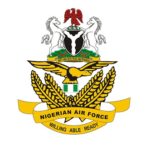For the past six years, Nigeria has sustained an accident-free aviation sector which has restored confidence in members of the flying public.
Nigeria’s aviation history is laced with many accidents that shook the nation. Gone were the days when planes were dropping from the sky every now and then, and the confidence of travellers dipped in flying.
For the apex regulatory agency, the Nigeria Civil Aviation Authority (NCAA), there was the need to sustain the tempo which is the responsibility of every stakeholder – the airlines, the airports authority, the airspace managers, among others.
One major contributory factor to the safety rating the sector currently enjoys has been the robust accident investigation with several safety recommendations that have improved the processes, procedures and the entire system.
Daily Trust reports that from 2007 when the Federal Government established the Accident Investigation Bureau (AIB), the country has released a total of 67 accident reports of which 48 were released under the present administration.
The Bureau has also released a total of 220 safety recommendations since inception with 139 of the recommendations released from January 2017 to July 2021.
For instance, Australia, according to experts, has the best safety record in aviation globally today because of the importance attached to accident investigation.
This is the direction which the Nigerian government through the AIB has taken with the number of accident and incident reports that have been churned out vis-a-viz the safety recommendations directed to either the NCAA, the Federal Airports Authority of Nigeria (FAAN), the Nigeria Airspace Management Agency (NAMA), the aircraft manufacturers and/or the operating airlines.
Before now, the trend in the aviation sector had been to release the report of an accident investigation more than a decade after the accident or a serious accident, as the case maybe, occurred.
In the case of Nigeria, some accident reports were released after the demise of the airline in question. A recent report on Chanchangi Airline’s serious incident occurred 11 years ago at Kaduna airport with 45 passengers on board. Also, there were other reports released years after the incident.
According to the AIB Commissioner, Engr. Akin Olateru, the aim of accident or incident investigation was not to trade blames but to identify the causal factors and then proffer safety recommendations to avoid a recurrence.
Stakeholders recently deliberated on eight final reports recently released by the AIB to compare notes and offer suggestions that would improve the processes and procedures of accident investigation.
The eight reports that were in focus included a report on the Serious Incident involving a B737-500 aircraft operated by Air Peace Limited which occurred at Port Harcourt Airport on 22nd June 2019; Report on the Serious Incident involving HS-125-700A aircraft operated by Associated Aviation Limited which occurred at Benin Airport, Edo State, on 10th July, 2011; Report on the Serious Incident involving a B737-200 aircraft (5N-BIF) owned and operated by Chanchangi Airlines, which occurred at Kaduna Airport, Runway 05, on 20th of August 2010 and report on the Serious Incident involving a Bombardier DHC-8-Q400 aircraft owned and operated by Arik Air Nigeria Ltd which occurred en route Kotoka International Airport, Accra, Ghana on 6th March 2018.
Others are Report on the Serious incident involving a Boeing 737- 500 aircraft operated by Med-View Airline which occurred at FL320 en-route Murtala Muhammed Airport, Lagos on 23rd July 2019; Report on the Accident involving a Hawker Siddley HS-125-800 XP aircraft owned and operated by SWAT Technology Limited which occurred on Runway 21, Port-Harcourt Airport, Omagwa, Rivers State on 11th June 2015; Report on the Serious Incident involving an Airbus A330-343 aircraft operated by Turkish Airlines Inc. which occurred at Port Harcourt Intl. Airport, Omagwa, Rivers State, Nigeria on 31st December 2019 and report on the Serious Incident involving Boeing 737- 300 aircraft owned and operated by Air Peace Limited which occurred at Murtala Muhammed Airport, Lagos on 15th May 2019. From these reports alone, a total of ninety eight recommendations were issued.
During the stakeholders’ engagement on the review of the accident reports, participants called out airlines or operators that attempt to hide incidents and refuse to report the same to the AIB, the body specifically set out to investigate air accidents and incidents.
“It is not the airline having incidents that are not safe, but the ones that try to hide the incident because the essence of accident reports is not to blame anybody or to present an airline as not being safe but to ensure that the serious incidents or accidents are investigated to avoid a recurrence,” said the President of Nigeria Air Traffic Controllers’ Association, Abayomi Agoro.
From the previous accident reports, some of the causal factors identified include but are not limited to lack of crew resource management and human error. The eight reports also exposed the deficiencies in Port Harcourt International Airport, in Rivers State, one of the four major international airports in the country.
According to stakeholders, the airport which was remodelled and commissioned recently should have been shut over poor navigational aids and the bad state of the runway.
One of the participants, who is a retired pilot, said the Port Harcourt Airport has remained the same for over 40 years, saying the approach at Port Harcourt Airport is problematic.
“There are trees all over as you are landing and it is even more difficult at night without light. I don’t know why it is still open,” he said.
Secretary General of Aviation Roundtable, Group Capt. John Ojikutu, rtd, noted that the accidents that happened at Port Harcourt airport were identical and preventable if the Nigerian Civil Aviation Authority (NCAA) and other government agencies had done their due diligence. He tasked the NCAA to immediately conduct an audit of Port Harcourt Airport. In addition, he said FAAN should have a periodic maintenance programme of all its airports.
He said: “Necessary things are not always done when these serious incidents or accidents occur in the country. What is the category of ILS in Port Harcourt Airport? Whose responsibility is it to calibrate the ILS, especially those in Port Harcourt Airport?
“If it’s a military environment, you can say they have signed to die, but what about the civilians? Most of the foreign registered aircraft that we are using for commercial flights who does due diligence on them? For how long are they supposed to remain in Nigeria flying? A lot still needs to be done to sustain the safety we have in the industry.”
Director-General of NCAA, Capt. Musa Nuhu, later cleared the air on Port Harcourt, saying it remains safe for flying. He spoke after a committee of inspectors instituted to investigate claims on Port Harcourt Airport concluded its assignment.
From the perspective of the NCAA, there are lines that should not be crossed as far as safety issues are concerned. NCAA’s General Manager, Air Operator’s Certificate/Airworthiness, Engr. Godwin Balang, said having experienced the most fatal accidents in the past attributed to several factors, stakeholders have done the due diligence to improve the performance of the machine, the man handling the machine and the entire system.
He said the evolution of the safety management system by the International Civil Aviation Organization (ICAO) as domesticated by the NCAA has greatly improved the aviation sector.
He said, “The evolution of safety management has really changed. When you look at the evolution of safety thinking, at the beginning, the focus was on the machines and the person flying the machines. The machines were not properly designed and the aircraft are falling off from the sky. So, the focus of ICAO then was to make the machine and the human being flying it better and that is why we have Annex 1 of the Chicago Convention which has to do with personnel licensing.
“The latest annex now is 19 which deals with safety management. This goes hand in hand with the evolution of safety management.”
According to him, the incident reporting system must be prioritized to improve the successes already achieved in terms of safety.
“Accidents are not going to stop happening tomorrow but when an accident happens, let it not be one of the things that were discovered in another accident that caused it. Let it be a new thing that caused it, just like they discovered human factors,” he said.
The AIB helmsman told our correspondent that the bureau is simplifying the reporting system by digitalizing it in a way that more people would have access to the report.
“Today, look at it very well, how many people actually read? You have this report; 300-page document of what happened, safety recommendations etc but at the end of the day, people don’t read. So, what we are trying to do is to digitalise it in a graphic way with a database to see how we can report this same text, this same word document we produced, see how we can put it in a graphic digital format and that is simply what we are going to be doing very soon. That way, it makes it very simple for the elites and anybody of interest to go to a particular section rather than flipping through pages of documents.
“If it is on the human factor, you will just click on the animation or the graphic and it tells you everything about human factors. If it is about the engine that interests you, you just click on that point and it gives you everything. It is about simplifying the way we communicate to the world in terms of our by-product and that has been discussed at the highest level in ICAO and it’s being accepted and by the time we are done, Nigeria will be the first country in the world that will come up with this format and that is what I mean by Nigeria will lead the world very soon in terms of accident investigation reporting system,” he said.

 Join Daily Trust WhatsApp Community For Quick Access To News and Happenings Around You.
Join Daily Trust WhatsApp Community For Quick Access To News and Happenings Around You.


